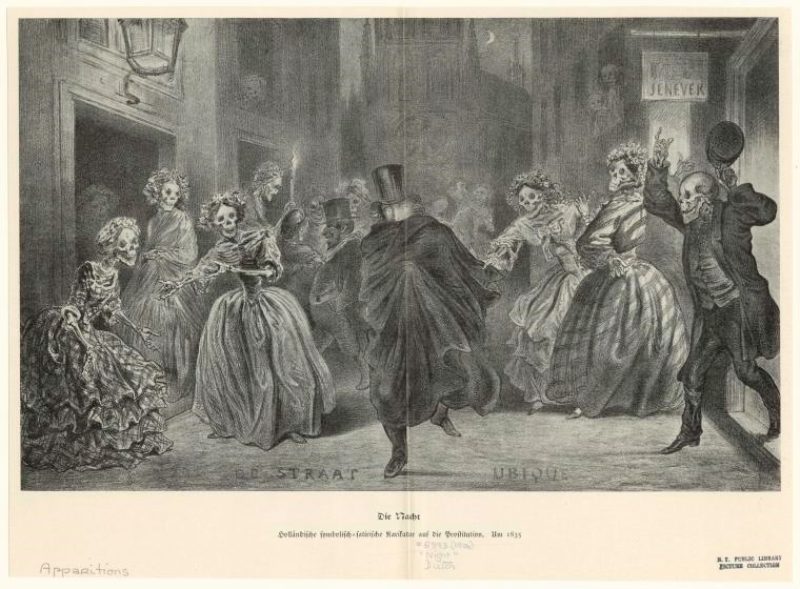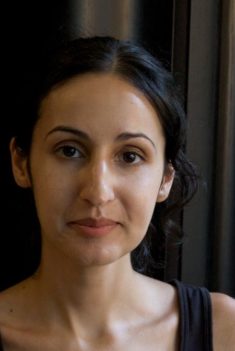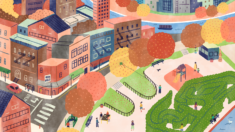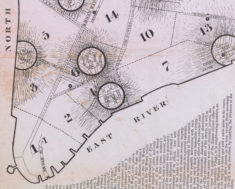About this call for a research assistant
Artist Mariam Ghani, currently in residence at the Center for the Humanities in the Graduate Center, CUNY and at The New York Public Library through fall 2018, is currently seeking a qualified research assistant for her upcoming project for the exhibition Germ City: Microbes and Metropolis opening at the Museum of the City of New York in September 2018. The candidate will assist in the collection of archival materials from the collections of The New York Public Library (NYPL) and the New York Academy of Medicine (NYAM) in June-July 2018. The result will be an essay-film constructed mostly from this archival material, interspersed with some microscopic imaging of diseases currently considered to be highly contagious.
Deadline to apply: Thursday, May 31, 2018.
About Mariam Ghani:
"My practice is based on research into places, spaces and moments where social, political and cultural structures take on visible and tangible forms. I am interested in understanding both how we reconstruct the past in the present, and how we construct the present for the future, through shifting private and public narratives. Sometimes this research leads me to construct a fiction or reconstruct a speculative history around documents or fragments, physical traces, or a sense of place. Sometimes it leads me to witness, document, intervene in or engineer a present-day event or temporary space. My recurring preoccupations include: border zones, no-mans-lands, translations, transitions, and the slippages where cultures intersect; security cultures, archives, architectures of democracy, and national imaginaries; places where nature and artifice imitate and influence each other; and the intersections of war, trauma, memory, identity, migration, language, and loss.
I work across multiple disciplines – film, video, installation, photography, data, text, sound and performance – but all my projects share the same research-based approach, and all operate through a variable mix of documentary, narrative and database forms. In practice, this means I generally start with a central inquiry, then accumulate a collection of materials around that center, and then develop one or more interfaces to the collection, which become the final form(s) of the project. My research traces both individual narratives and the larger systems or structures that condition or enclose them, which are reflected in my work by rigorous formal structures." -
The central inquiries of this project:
- What are the (linguistic and visual) metaphors through which we understand illness? Have these changed over time, or are some of them constant? Have changes in the ways we depict / speak about diseases changed the ways we treat those diseases, or have the changes in treatment driven the changes in metaphors? Why do we “wage war” on disease? What does it mean for the human body to become a “battleground” where disease and treatment meet?
- How is illness itself metaphorized? (cf. Sontag's Illness as Metaphor) How do particular diseases become metaphors for dangerous and threatening Others, and thus justifications for exclusion, segregation and isolation (quarantine) of specific groups of people? Are these stable metaphors or do they change as our general understanding of disease transmission changes? Does the same illness mean the same thing in the 12th century, 18th century, 21st century?
What we are collecting:
Visual metaphors: visual images in any medium, moving or still, that represent metaphors for illness or use illness as a metaphor for something else, preferably for a dangerous or threatening Other that must be excluded, segregated and isolated
Sound: ambient sound recorded during the treatment of past epidemics or outbreaks of highly contagious diseases; children's songs that contain references to diseases and epidemic outbreaks of the past, often obscured through metaphor; interviews with medical professionals about responses to contagion, epidemics and outbreaks that are highly spiced with metaphors
Text: recommendations for relevant books I should read; poems that might contain extended metaphors for illness or use illness as an extended metaphor for something else
About the exhibition:
The exhibition Germ City is part of Contagious Cities, a multi-city project staged in Geneva, Hong Kong, and New York from September 2018 to September 2019, generously supported by the Wellcome Trust. For more on Contagious Cities, visit: https://wellcome.ac.uk/what-we-do/our-work/contagious-cities
Responsibilities:
The chosen candidate will work directly with Mariam Ghani to develop a research plan and carry out archival research at NYPL, NYAM, and other repositories, as determined with the artist.
Qualifications:
Qualified candidates will have research experience and preferably an interest in the subject at hand. Must be in residence in the New York city area during June-July 2018.
To Apply:
Interested candidates should send a cover letter addressed to Mariam Ghani and brief resumé highlighting relevant experience and areas of interest to Cara Jordan at [email protected]. Please include “Mariam Ghani Research Assistant Application” in the subject of the email. Please submit applications by Thursday, May 31, 2018. Interviews will take place the first week of June and the position will begin immediately thereafter.
Compensation:
Exact schedule and pay rate to be determined directly with the artist.




